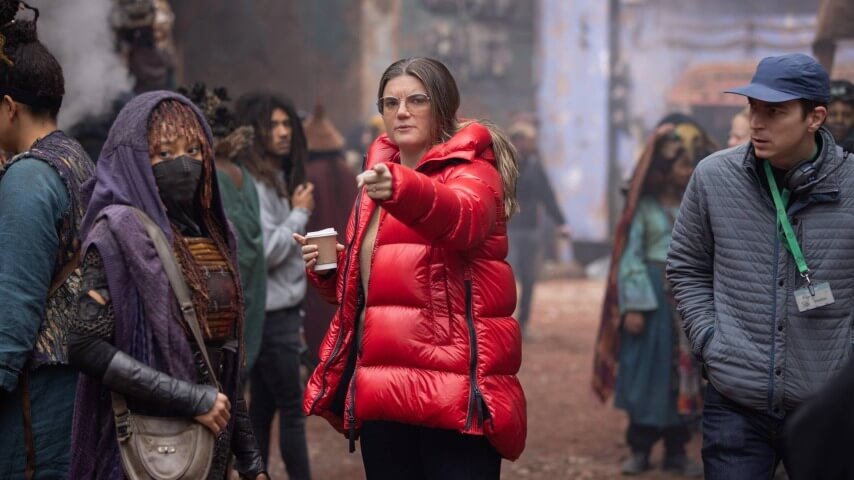Sadly, given what we knew about the Last Jedi backlash—which couched racist and sexist vitriol inside complaints about Luke mirroring Yoda’s character arc—it’s perhaps unsurprising that the first Star Wars series created by a queer woman and starring a queer woman of color would attract input from the internet’s Star Wars reaction industrial complex. But Headland knew what she was getting into. “I have always been, since the launch of YouTube, part of the Star Wars recap/criticism/lionization fandom community,” she tells The Wrap. “You don’t have to tell me who’s talking about it or how bad it is online; I know exactly who they are. I supported them on Patreon. There are some of them that I respect, and there are some of them that I think are absolutely snake oil salesmen, just opportunists. Then, of course, there are the fascists and racists. So it runs a gamut.” Nevertheless, while she thinks that “any gripes creatively with the show are completely valid,” Disney, in Headland’s opinion, didn’t understand the reaction, what it meant, or how to use it.
“The content that is being put out by the streamers or the studios is being snatched up by these other creators, and so commentaries, synopses, live videos, all of the ways that these creators make money — through viewer-based ad revenues and their Patreons — there’s a lot of money to be made,” Headland says. “And by the way, have at it. Get your coin 100%. But it revealed to me that there is a misunderstanding between the studios and that engagement. They think of it as fandom, and in ways it is, but studios use it almost like a focus group. It made me start to think, rather than these fans are toxic, or this thing is being mean to me, it made me think more that the content being made about “Star Wars” will ultimately be more culturally impactful than actual “Star Wars.” I believe we’re headed into that space[…]Some of that stuff is probably the only content that a younger generation is seeing.”
Headland knew the “writing was on the wall” when she started receiving phone calls about viewership and criticism. Though she thinks “it could have been worth it to allow the audience it was meant for to find it,” she respects Disney’s decision. But her point about the financial rewards in the Star Wars fan reaction industry is one that studios need to reckon with. These aren’t fans telling you what they want; they’re creators trying to make money. Those fans are responding to what generates returns, and as we’ve long known, YouTube’s algorithm favors strong reactions. “Those IPs will continue to make money, but I don’t know how much they will affect the next generation as much as the content that is being created around those events, IP films and television shows.”
Read the whole interview at The Wrap.

 Keep scrolling for more great stories.
Keep scrolling for more great stories.
